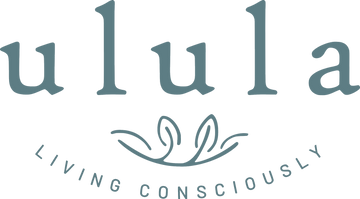 [/caption]
At Ulula we always recommend parents to wean their babies with organic ingredients. Babies delicate and developing bodies do not deserve to be bombarded with the cocktail of potentially harmful chemicals used in the production of so many of our foods.
Latest research from the Environmental Working Group states (my emphasis):
[/caption]
At Ulula we always recommend parents to wean their babies with organic ingredients. Babies delicate and developing bodies do not deserve to be bombarded with the cocktail of potentially harmful chemicals used in the production of so many of our foods.
Latest research from the Environmental Working Group states (my emphasis):
€œThe growing consensus among scientists is that small doses of some pesticides and other chemicals can cause lasting damage to human health, especially during fetal development and early childhood. Scientists now know enough about the long-term consequences of ingesting these powerful chemicals to advise that we minimize our consumption of pesticides.€Confused on which fruits and vegetables you should be buying organic? Yes, it can be a few more pennies, but studies by the Environmental Working Group show that there are some fruit and vegetables that you should always be buying organic because of the amount of pesticides used on the non-organic kind and the porousness of their skins in retaining the pesticides. The foods on the Dirty Dozen list (see below) are foods that have very porous skins and which receive heavier doses of, sometimes multiple, pesticides. These are the fruit and vegetables that you should always be buying organic. The Clean 15 (see below) are those fruit and vegetables that either have a skin that cannot be penetrated by the pesticides and/or those that do not receive as many pesticides. The Clean 15 are those foods that are more okay to not buy organic if organic varieties aren't available. The EWG research has shown that, €œconsumers can reduce their pesticide exposure by 80 percent by avoiding the most contaminated fruits and vegetables and eating only the cleanest".
- Peaches
- Apples
- Peppers
- Celery
- Nectarines
- Strawberries
- Cherries
- Kale
- Lettuce
- Grapes
- Carrots
- Pears
- Onions
- Avocados
- Sweetcorn
- Pineapple
- Mangos
- Asparagus
- Sweet peas
- Kiwis
- Cabbages
- Aubergines
- Papayas
- Watermelons
- Broccoli
- Tomatos
- Sweet potatos
I wouldn't advise starting weaning babies with some of the items in the above lists, but I think that this offers us a useful guide if we are serious about feeding our babies a safe and wholesome diet.
Holle Organic Baby Food - Guaranteed Pesticide Free
I know as a mother feeding a family of five that buying organic can be a few more pennies, but I really believe that such expenditure is an investment in our children's future health.Because buying fresh fruit and vegetables was not terribly easy or convenient when I was weaning my babies, I looked into the various organic baby food alternatives available in jars. The Holle brand clearly stood out above the rest for the quality of the food and the gentle production methods that respect the food as well as the baby they go on to feed. It was for those reasons that I wanted to stock Holle baby foods when setting up Ulula. I also found the Holle baby jars perfectly complement their huge range of organic baby porridges, so that combining different jars with different porridges during the course of a week I could feed my babies a great selection of meals.
Share your weaning experiences with other parents. How do you ensure you feed your baby organic weaning recipes?

